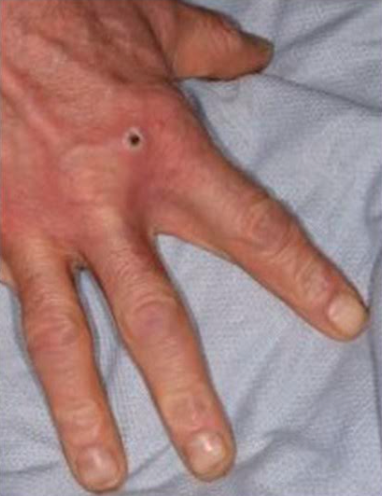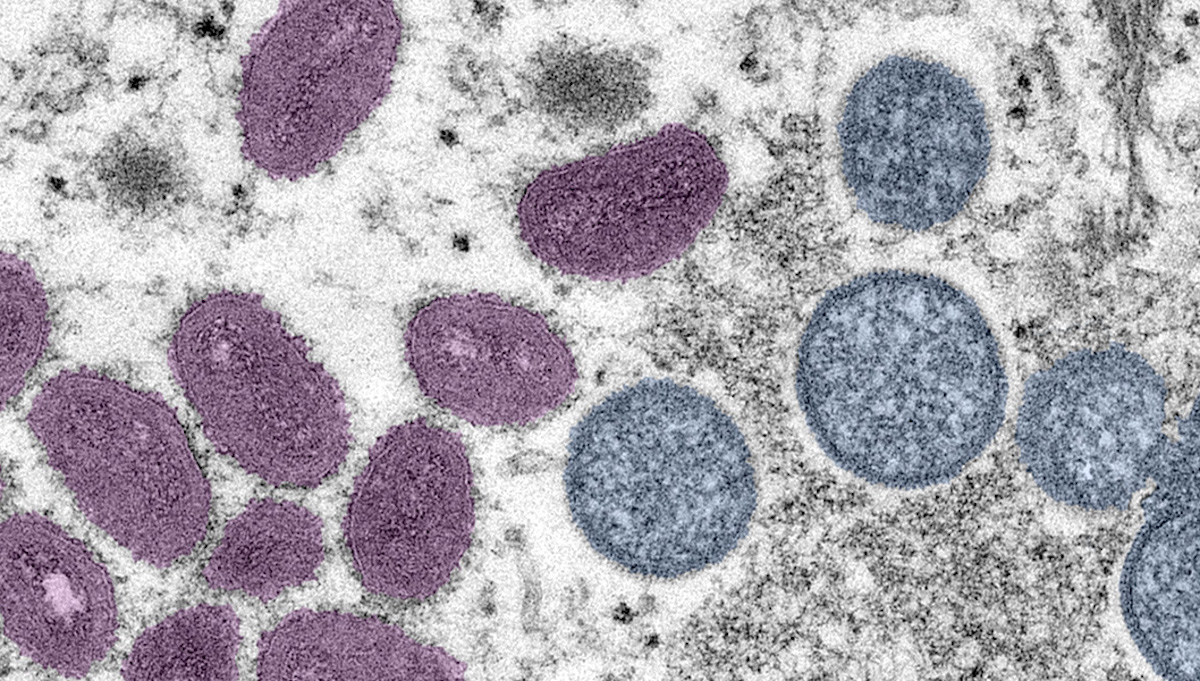The most recent California health report listed 434 cases of monkeypox in the state last week, and on Friday, a new case was diagnosed in neighboring Ventura County. The approach of the spreading disease parallels COVID in an uncomfortable way — first a distant country with cases, then a neighboring county — but unlike the novel coronavirus, monkeypox has been known since 1958 and treatments already exist.
The individual in Ventura is an adult, while another case in an undisclosed county last week was a California toddler. The routes for infection in both cases were under investigation, but each is presumed to be due to close physical contact with another infected individual, their clothing, or their bedding.
Monkeypox is a viral disease first identified among laboratory monkeys in Copenhagen, hence the name, and the animal is thought to be a reservoir for the disease. The 2022 outbreak was first confirmed in May by the Democratic Republic of Congo, a country in the western part of Central Africa, where the disease is known to be endemic. When cases appeared in the U.K. and other countries where monkeypox is more unusual, concern began to grow. The World Health Organization declared it a global health emergency on July 23, as the outbreak had spread to 75 countries and more than 16,000 individuals, primarily men who had sex with men.
The early handling of the disease sparked some backlash among activists who noted monkeypox wasn’t so concerning to the West when it was making people ill in Africa. Others stated authorities were downplaying the spread as they had HIV/AIDS among the gay community in the ’70s and ’80s.
Very little is known about the Ventura case other than its confirmation on Friday. In Santa Barbara, which has no reported cases of monkeypox, Public Health spokesperson Jackie Ruiz said the mechanism to learn of suspected cases and test for the virus is an established one among all area health-care providers, hospitals, and clinics. As far as risk to the general public, Ruiz provided a statement from the state Public Health Department regarding the child, who had been in close contact with an adult with a confirmed infection: “Because monkeypox spreads through close physical contact, it is not unusual for people living in the same household who are unable to isolate to contract the virus. There is still a low risk to the general public, but anyone can get the virus because it spreads through close physical contact, including hugging, cuddling, and kissing, as well as sharing bedding, towels, and clothing.”
Sign up for Indy Today to receive fresh news from Independent.com, in your inbox, every morning.
While the monkeypox virus can be transmitted through close face-to-face interactions, it is not spread through casual conversation or someone simply walking by, for instance.

Monkeypox causes a painful rash that resembles pimples or blisters. Some individuals have had a rash of just a few sores, which can appear just about anywhere on the body but are known to occur in the mouth and genital areas. Other symptoms can be fever, headache, muscle ache, and swollen lymph nodes. The illness generally lasts for two to four weeks and is rarely fatal. Isolation is necessary until the rash has crusted over or resolved.
Good hand hygiene can help reduce the spread. In addition, Public Health suggests talking with sexual partners about recent illness and being aware of new or unexplained rashes on your or your partner’s body. More information is available at Pacific Pride Foundation and the Centers for Disease Control and Prevention, including tips on avoiding the virus at clubs and parties.
While the decrease in universal smallpox vaccinations is thought to be linked to the outbreak in the Congo region, therapeutics such as the Jynneos vaccine exist, though recent reports say there is a shortage and that the Biden administration has four million doses on order from manufacturer Bavarian Nordic.
Support the Santa Barbara Independent through a long-term or a single contribution.



You must be logged in to post a comment.